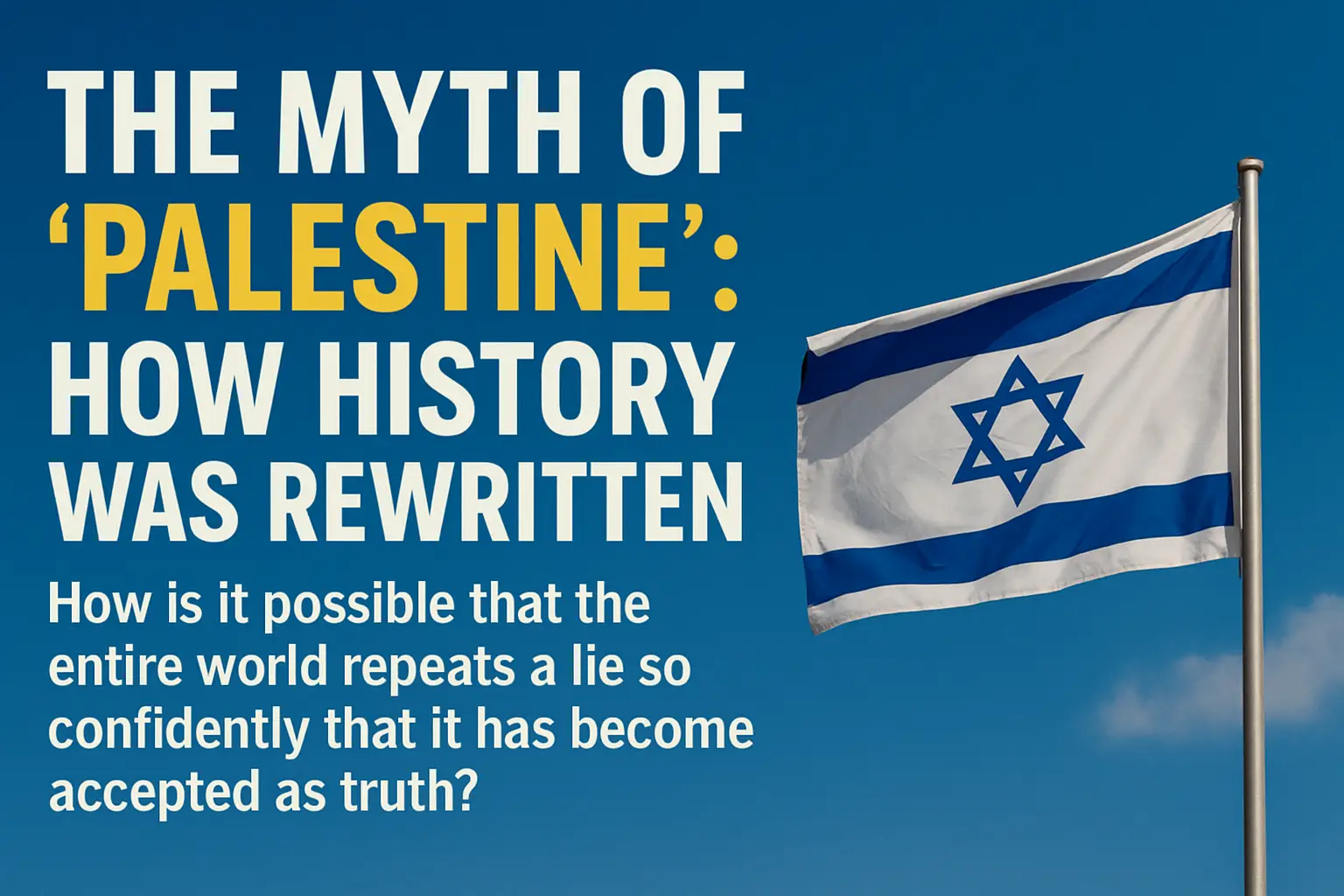
Inventing a Nation: How a Modern Narrative Buried Ancient Truth
A Manufactured Identity Becomes a Political Weapon
How does a narrative with no historical foundation become the world’s favorite “truth”? How did an identity that barely existed a few generations ago transform into a global political cause, while the people with the deepest historical roots in the land are portrayed as impostors?
The answer is uncomfortable, but essential: history didn’t change, only the storytelling did. And few stories have been rewritten more aggressively than the claim that there has always been a country called “Palestine,” belonging exclusively to an Arab people.
When the Arab Leadership Told a Very Different Story
Long before social media, before slogans, before political branding, the leaders of the Arab population living between the Jordan River and the Mediterranean spoke plainly about their identity and it was not “Palestinian.”
During the 1930s, when the British Peel Commission interviewed local Arab notables, they did not describe themselves as part of a separate nation. They identified themselves as Arabs or as part of Greater Syria, a regional identity extending far beyond the borders of today’s political map.
The statements they made were not ambiguous. They made it clear that “Palestine” was simply a geographic description used by foreigners, not a nation, not a country, and not a people.
Even in the 1950s and 1960s, long before Israel took control of Judea, Samaria, or Gaza, leading Arab figures repeated the same message: the idea of a distinct Palestinian nationality was a later invention. What mattered was the broader Arab identity, not a local one.
This was the consensus for decades. No separate anthem. No national institutions. No historic capital. No administrative borders. No sovereign history.
That is not opinion. That is documented reality.
Before 1948, “Palestinian” Meant Something Very Different
A century ago, the world used the word “Palestinian” in ways that would shock today’s activists. Jewish communities embraced the label, it appeared in their newspapers, schools, energy companies, and orchestras. Jews held passports stamped with “Palestine.”
Arab residents generally did not. They saw themselves simply as Arabs living in a region that had shifted imperial rulers over centuries, Ottoman, British, Roman before that.
The concept of a unique Palestinian nationalism only gained traction after the establishment of Israel, and particularly after the Arab states lost the 1967 war. Having failed to defeat Israel militarily, a new strategy was born: delegitimize Israel through narrative warfare.
A Manufactured Identity Becomes a Political Weapon
The PLO, founded in 1964, three years before Israel entered the territories they now claim as their “ancient homeland”, created a storyline designed to win international sympathy. With heavy ideological support from the Soviet Union, a new identity was shaped, marketed, and exported to the global stage.
It worked.
Within a few years, Western academics, journalists, and activists embraced the new narrative.
Suddenly, the world forgot what local Arab leaders had said for decades. Forgotten was the fact that Rome renamed Judea to “Palestina” in 135 CE to erase Jewish identity after crushing a Jewish revolt. Forgotten was the truth that only one people ever had an independent state there: the Jewish people, twice in history.
Facts faded. Propaganda triumphed.
How a Fiction Became Accepted History
Repeat a story loud enough, emotional enough, and often enough and it becomes the version people prefer to believe. Today, millions confidently recite that “Palestine has always existed,” despite maps, documents, legal records, and eyewitness testimonies proving otherwise.
Israel is accused of occupying a state that has never existed.
The descendants of those who once denied any distinct national identity now claim it stretches back millennia. And the world nods approvingly, because the narrative is easier to digest than the truth.
We live in a time where accusing Israel carries more weight than understanding history.
Why the Truth Still Matters
Israel does not rely on slogans for legitimacy. Its claim to the land is supported by archaeology, ancient texts, continuous presence, and the only historical kingdoms ever rooted in that soil.
For over 2,000 years, Jews prayed toward Jerusalem even when they were exiled from it.
Not one other people on earth directed their prayers toward a place called “Palestine.”
The modern rewriting of history is not simply inaccurate, it is dangerous. It fuels hatred, distorts public opinion, and turns the Jewish people into villains of a story they didn’t write.
Standing up for truth is not a political act. It is a moral responsibility.
Time to Pull Back the Curtain
There was never an independent Arab country named Palestine.
The identity was constructed for political warfare, not drawn from centuries of nationhood.
If the world is willing to rewrite the past so casually, what else is it willing to distort?
It is time, past time, to challenge this historical amnesia.
To demand integrity.
To protect truth from propaganda.
And above all, to stand with Israel, the only nation whose story in this land is rooted not in invention, but in history.



